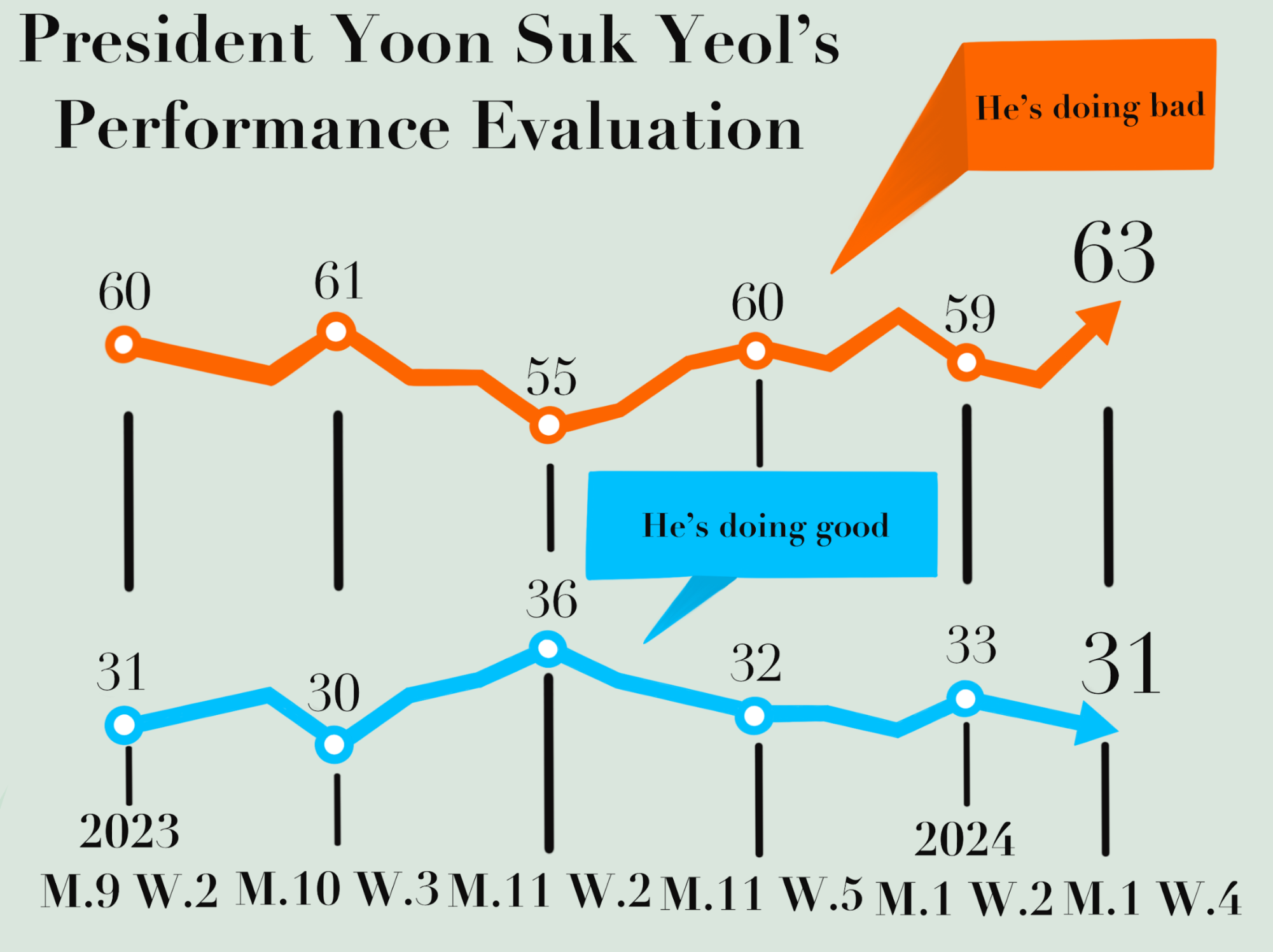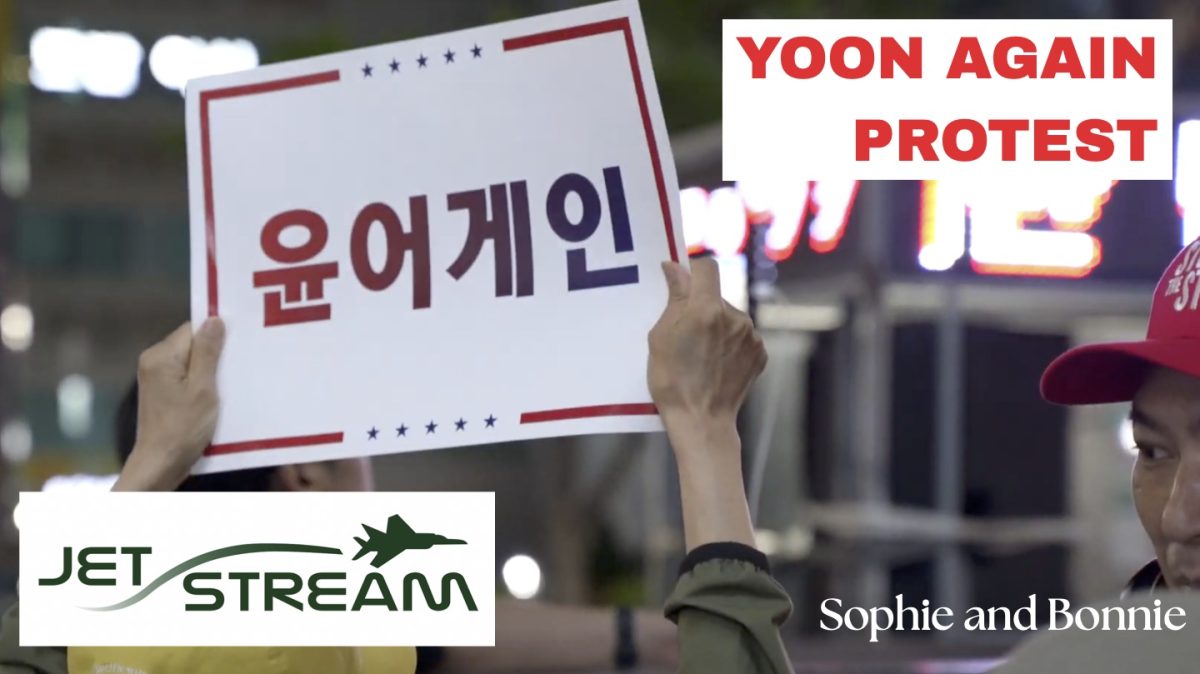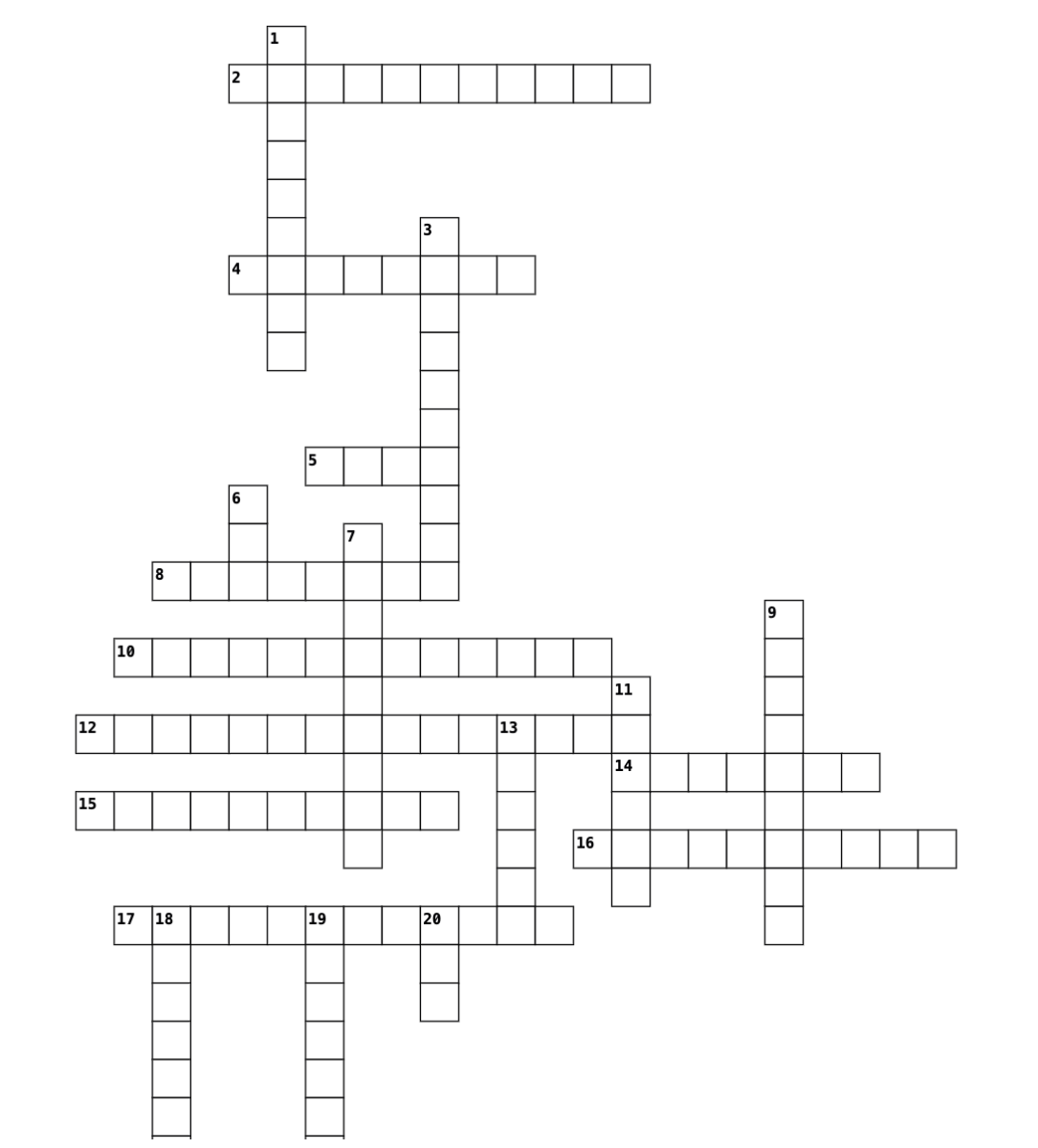Ever since the inauguration of President Yoon Suk-yeol, his approval rating has fallen into a negative spiral. The number reached a record-low level of 31% in October, reflecting the majority’s denunciation against the current administration. Disapproval especially peaks among citizens below 29 years of age, and research by the Korean Gallup revealed that only 9% of teenagers support the current regime. Changes made in the CSAT (College Scholastic Ability Test) and contemporary political conflicts mainly account for this issue.

On June 15th, approximately five months before the annual college entrance exam, President Yoon abruptly ordered the Korean Ministry of Education to exclude “killer questions,” challenging problems that less than 20% of students answer correctly. This act faced severe backlash as such questions differentiate the best of the best in the assessment. Yoon claimed that his decision aimed to provide egalitarian opportunities for those who cannot afford private lessons.
The sudden declaration infuriated students. “One thing that annoyed a lot of people is that the changes took place immediately with no prior notice. From the test taker’s perspective, they’re dealing with a new version of the test with only one official practice test in September. There wasn’t much time to prepare for the new system,” said Dongwook Kim, a Korean third-year high schooler.
Contrary to this abrupt proposition, the Suneung test still featured questions that only the top 1% passed, which enraged both recent and prospective test takers who felt back-stabbed by the federals. Such distrust in the government played into the downfall of approval ratings.
“The Ministry of Education reflected the changes well for the mock test in September. But, in the actual test, out of nowhere, they had a question in the math section which was basically a killer. Only one percent of people got it right. They included a killer question when they said that they would take it out. It was frustrating. And now, because of what they did last year, I can’t trust them this year. I think many other people would feel the same,” said Korean high school senior Seungwoo Lee.
Moreover, other decisions made by the Yoon administration shed doubt on whether the Korean government truly dedicates itself to the cause of egalitarian education. Many critics posit that Yoon’s decision to maintain autonomous private, foreign language, and specialized high schools contradicts his stance in the CSAT controversy. While Yoon attempted to equalize opportunities through the reformation of the test, he remains blind to the competitive nature of private high schools that pit students against each other from a young age. These establishments still implore monetary investments from parents to increase their children’s chances of admission.
Financially, the government sparked extreme controversy when Yoon decided to cut the research and development (R&D) budget by 16% for the first time in Korean history – the budget had stayed consistent even during the IMF crisis in 1997. Many professionals, especially those from the Korea Advanced Institute of Science and Technology (KAIST), Pohang University of Science and Technology, and Seoul National University, harshly criticized the decision because it would decrease Korea’s competitiveness in an R&D-centered world.
A student at KAIST was carried out after interrupting Yoon’s commencement speech during their graduation ceremony. The youth underlined his frustration against Yoon’s decision, as previous protests held no effect. Afterward, over a thousand KAIST students and faculty gave their signatures to support his potential lawsuit.
The grudge held toward the current administration extends beyond the education industry. “I think there never was a president that was this controversial in his regime. As soon as he began, he abandoned the former Blue House and moved to Yongsan. Soon after, the Suneung controversy occurred. I personally really don’t like what he’s doing,” said Dohyun Kim, a Korean high school senior.
As Yoon’s approval plummets, the midterm elections approach in a few months. Political experts inquire on how this trend among the younger generation will affect the upcoming elections, and on ways the current government can attempt to rectify their controversies and wrongdoings.




















































Eddy kim • Mar 14, 2024 at 7:24 pm
I love how DIS got into political stuff
Ms. Morissette • Mar 14, 2024 at 7:07 pm
I love how you included the thoughts and quotes of younger people in here. So many articles talk about data with younger people but never feature them. Can’t wait to read more of your work! 🙂